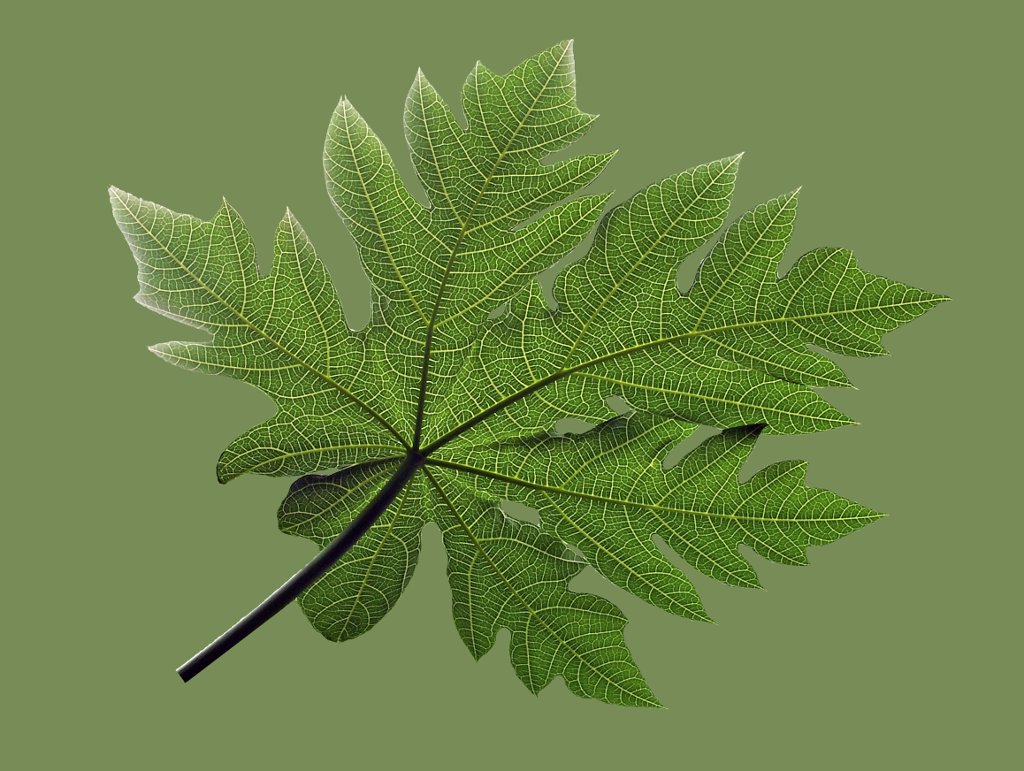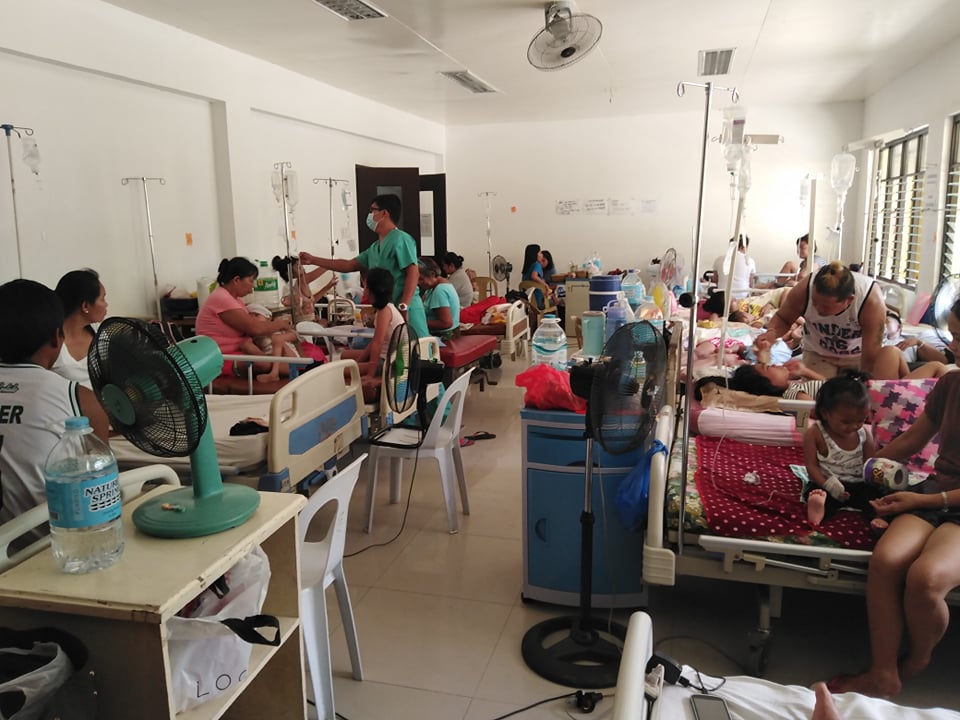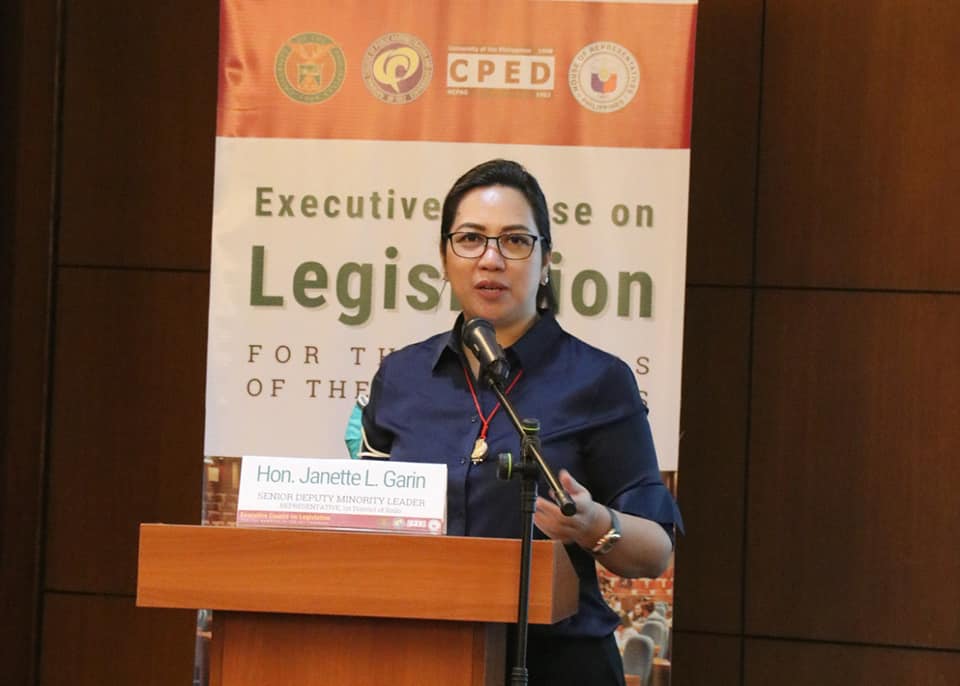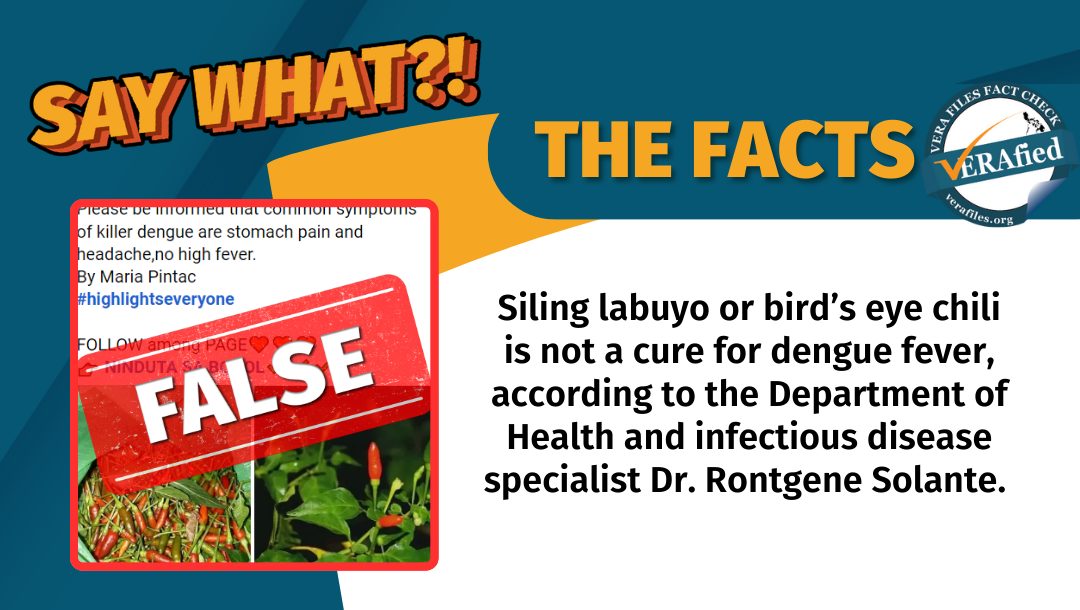A netizen’s month-old online post endorsing papaya leaf juice paints an incomplete picture of its effectivity as a “cure” for dengue.
The Facebook (FB) post, already shared over 183,000 times, continues to circulate as the country faces a nationwide dengue epidemic declared by the Department of Health (DOH) on Aug. 6.
STATEMENT
As the number of dengue cases nationwide rose, FB page Kapitans WORLD published on July 8 instructions for juicing papaya leaves, claiming its extract is an “effective treatment” for the disease.
The page, which has published posts about other homemade herbal remedies and “health benefits” of certain foods, gave instructions for extracting the juice by crushing papaya leaves, and prescribed people with dengue to drink a spoon of papaya leaf extract, a spoon of sugar or honey, and a glass of water, thrice a day. It claimed that “dengue will disappear” after two days of drinking the juice.
Kapitans WORLD questioned why the DOH was not educating the public about the supposed cure:
“BAKIT AYAW ITURO NANG DOH NA ANG MABISANG GAMOT SA DENGUE AY ANG KATAS SA DAHON NANG PAPAYA. . . . .ang katas na makuha sa dahon nang papaya ay may taglay na maibalik ang tamang platelets sa katawan natin. . . .
(Why doesn’t the DOH teach people that the effective remedy for dengue is the juice from papaya leaves. . . . . the juice extracted from the papaya leaf can restore normal platelet counts in our body. . . .).”
Source: Kapitans WORLD Facebook page, July 8, 2019
The page also provided links to an instructional video it posted July 10 on its YouTube channel, also named Kapitans WORLD. It bore the title “The most effective cures for dengue fever” and showed a man demonstrating how to make the concoction using a blender. The footage has been viewed over 8,000 times.
FACT
The effectiveness of papaya leaf extract as treatment for dengue is still being evaluated. However, initial studies show the juice indeed has the potential to raise platelet levels in dengue patients.
People with the dengue virus can have decreased platelet counts and platelet dysfunction as the disease progresses, according to 2007 World Health Organization (WHO) guidelines on the disease and a DOH primer.
The Philippine Institute of Traditional and Alternative Health Care (PITAHC), an attached office of the DOH leading research and promotion of traditional medicine, recognized local and foreign records and studies that found papaya leaves to have a positive effect on dengue patients.
In an email to VERA Files, PITAHC said the use of papaya leaves as treatment has been “anecdotally recorded” in the country and provided a link to the Philippine Knowledge Digital Library on Health (PKDLH) — a national database of traditional medicines “gathered from work of researchers and scholars.” It showed that papaya leaves were being used as a treatment in two focus groups and a community, but the database did not elaborate further.
Meanwhile, PITAHC also took note of studies abroad recorded in the Encyclopedia of Common Medicinal Plants in the Philippines Volume I that found promise in the use of papaya leaves as a treatment for dengue. They were:
-
- a 2011 study in Pakistan which found papaya leaves to show “potential activity against dengue fever” after a 45-year-old male dengue patient drank the extract twice a day for five days, and
- a 2013 study in Malaysia which found that those who drank papaya leaf extract in a trial involving 228 dengue patients had increased platelet counts.
However, PITAHC also stressed that large-scale clinical trials still need to be conducted to determine the treatment’s efficacy. It cited a 2016 study in India, published in the International Journal of Applied and Basic Medical Research, which said:
“[Carica] papaya leaf extract can be considered as a potential candidate for increase in platelet count in patients of dengue; however, there is need of high-quality evidence in the form of large clinical trials before a decision related to the use of such extract is made.”
Source: Efficacy and safety of Carica papaya leaf extract in the dengue: A systematic review and meta-analysis, International Journal of Applied and Basic Medical Research, Oct.-Dec. 2016.
Apart from papaya leaves, tawa-tawa leaves have also been the subjects of research on herbal treatments for dengue. Tawa-tawa is recorded in the PKDLH and Encyclopedia of Common Medicinal Plants of the Philippines, but the latter noted that clinical evidence supporting its efficacy is lacking.
Additionally, the DOH, WHO, and the Centers for Disease Prevention and Control in the United States have all said there is currently no specific treatment for dengue, but it can be managed early.
Sources
Centers for Disease Control and Prevention website, “Dengue: Symptoms and treatment,” May 3, 2019.
Charan, J., Goyal, J., Saxena D., and Yasobant S., “Efficacy and safety of Carica papaya leaf extract in the dengue: A systematic review and meta-analysis,” International Journal of Applied and Basic Medical Research, Oct.-Dec. 2016.
Dayrit, F. and Macahig, R. “Papaya,” Encyclopedia of Common Medicinal Plants of the Philippines Volume I, January 2014.
Dayrit, F. and Macahig, R. “Tawa-tawa,” Encyclopedia of Common Medicinal Plants of the Philippines Volume I, January 2014.
Department of Health website, Dengue Health Advisory, n.d.
Personal communication, Philippine Institute of Traditional and Alternative Health Care, Aug. 15, 2019.
Personal communication, Philippine Institute of Traditional and Alternative Health Care, July 25, 2019.
Personal communication, Philippine Institute of Traditional and Alternative Health Care, July 30, 2019.
Philippine Traditional Knowledge Digital Library on Health
Nisar, A., Fazal, Hina, F., Ayaz, M., et al, “Dengue fever treatment with Carica papaya leaves extracts,” Asian Pacific Journal of Tropical Biomedicine, August 2011.
Soobitha, S., Tan, C., Kee, C., et al, “Carica papaya Leaves Juice Significantly Accelerates the Rate of Increase in Platelet Count among Patients with Dengue Fever and Dengue Haemorrhagic Fever,” Evidence-Based Complementary and Alternative Medicine, 2013.
World Health Organization website, “Dengue and severe dengue,” April 15, 2019.
World Health Organization website, “DENGUE Guidelines for diagnosis, treatment, prevention and control,” 2009.
(Guided by the code of principles of the International
Fact-Checking Network at Poynter, VERA Files tracks the false claims,
flip-flops, misleading statements of public officials and figures, and
debunks them with factual evidence.
Find out more about this initiative and our methodology.)




